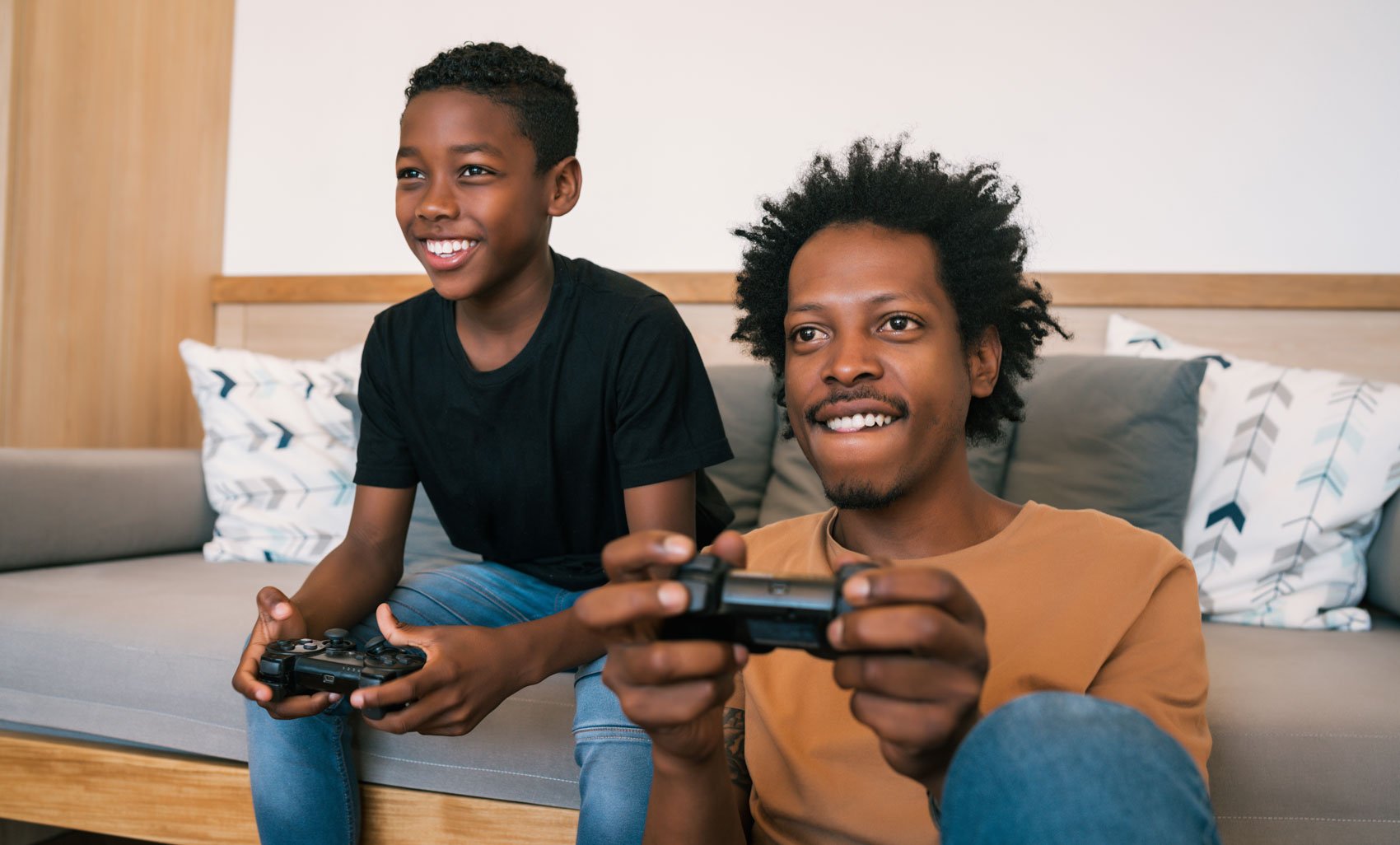Let Them Press Start!
/Video games and gaming systems have exponentially grown in popularity over the past several decades; and, like many “new” things, the pushback against gaming has amplified almost as fast as its popularity. For many years, the vast majority of psychological research held firm to the dogma that video games were a negative influence. They were associated with negative terms such as violence, addiction, and depression.
Recently, however, some fresh minds in psychology have pushed back against this dogma in an attempt to establish a more balanced understanding of how video games can and do impact us. Research has been building towards an understanding of the potential cognitive, motivational, emotional, and social benefits that video games may provide our children and our society. I think it’s time we acknowledge that research.
It is important to acknowledge my bias on this matter, as I am an unashamedly avid video gamer. In fact, as I write this, I am wearing a t-shirt based on one of my favorite video games (Persona 5, if you were curious). I also wore this shirt to the office, and I did so with the specific intention of ensuring that I, as a potentially scary “doctor,” could come across as approachable and exciting for the youth I work with. This brings me to one of the first positives I find in video games; they can connect people.
Especially during the height of the COVID-19 pandemic, many children, adolescents, and even adults were turning to video games as a way to remotely engage in social interaction without risking physical health. This was certainly a healthy way of connecting during a time of social distancing; and it also has been, is, and will continue to be a healthy way of connecting with each other in our modern era. Video games provide a social atmosphere of engaging imagination, in which our youth can interact with each other in new and creative ways. Video games provide unique social environments for those of us who may struggle in more traditional social settings, and they can help foster positive peer relationships rooted in shared interests and commonalities.
Beyond the social benefits video games provide, research has identified many cognitive benefits that come from gaming. Particularly when compared to other types of “screen time” (another term that is almost exclusively used with negative connotation), video games encourage dynamic problem-solving, inhibition, flexible thinking, and goal-directed action; in other words, executive functioning skills. Executive functioning refers to how we attend to, navigate, and control our life; it is a crucial cognitive skill, that is adversely impacted by an array of neurodevelopmental and socioemotional disorders. Video games can help build these skills and activate these critical brain regions.
In contrast to colloquial discussion, video games have also been shown to effectively boost the emotional health of individuals, including reducing symptoms of anxiety and depression. The cognitive benefits of gaming directly link to the emotional benefits. Goal-directed engagement, and the achievement of those goals, can help provide a sense of success and confidence in those who often feel helpless and unworthy. It is often said that adults should take up hobbies in which we can concretely see ourselves reach a goal, feel successful, and obtain victory and/or completion… we don’t often get that sense of pride. I see no difference in what we would want for our kids; the opportunity to feel successful and victorious through an activity in which they are confident. As we move towards a more tech-based era, video games are what can provide that sense of achievement; that sense of working hard for something and getting it.
In the end, like most things, it comes down to moderation. The research that shows how video games can sometimes have a negative impact is still valid; and, it is equally important to also see, review, and acknowledge the research that shows the positive impacts video games can have in the lives of our youth. Moderation is key; video games are not and should not be an all or nothing situation. Above all, I encourage parents to join their children in how they play; it is what I actively strive to do with every client I meet as a child psychologist. As research shows, “families that play together [including video games] stay together.” If video games are how your child is playing, join them in their play, their realm, and their joy. I don’t think your kid will be upset if you struggle to steer that Mario Kart™ car; I think they will be excited to have you drive alongside them.
For more research on this topic, also read Time spent playing video games is unlikely to impact well-being from Royal Society: Open Science.








